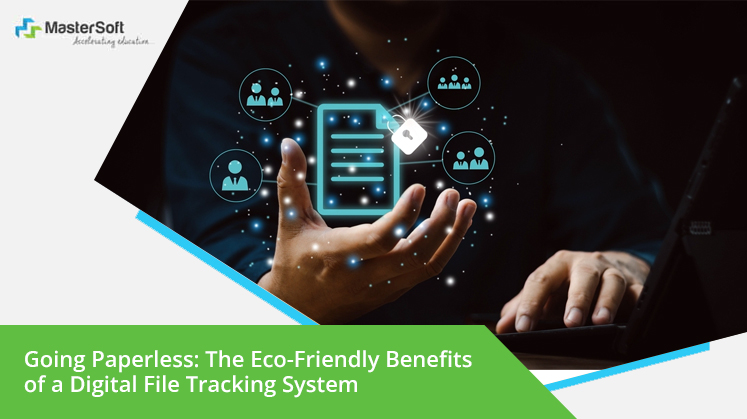
In today’s digital age, businesses and individuals alike are becoming increasingly aware of the importance of adopting eco-friendly practices. This blog explores the numerous eco-friendly benefits of embracing a digital file tracking system and how it contributes to a sustainable future.
An Enterprise Resource Planning (ERP) system is a software solution that integrates various business processes and functions into a centralized system. It allows organizations to automate and streamline their operations, improve efficiency, and facilitate data-driven decision-making. ERP system typically include modules for different areas of business.
-
Conservation of Natural Resources:
One of the most significant environmental advantages of going paperless is the conservation of natural resources. The production of paper involves the consumption of trees, water, and energy. By reducing or eliminating paper usage through digital file tracking systems, we can help preserve forests, reduce water consumption, and decrease energy demands associated with paper production.
-
Reduction of Carbon Footprint:
Implementing a digital file tracking system significantly reduces the carbon footprint associated with paper usage. The paper industry contributes to deforestation, which in turn leads to increased greenhouse gas emissions. Additionally, paper production and transportation processes release significant amounts of carbon dioxide into the atmosphere. By going paperless, we can mitigate these emissions and contribute to a greener environment.
-
Waste Reduction and Recycling:
Traditional paper-based systems generate a significant amount of waste. Paper documents are often discarded, leading to overflowing landfills and increased pollution. On the other hand, digital file tracking systems minimize the need for physical storage, eliminating the accumulation of paper waste. Moreover, digital files are easily editable and transferable, reducing the need for printing multiple copies and subsequent disposal. By adopting a paperless approach, we can promote waste reduction and encourage recycling.
-
Increased Efficiency and Productivity:
Digital file tracking systems offer a streamlined and efficient way of managing and organizing documents. With electronic files, finding, accessing, and sharing information becomes quick and effortless. This increased efficiency translates into time savings and enhanced productivity. By reducing the time spent on manual paper-based processes, individuals and businesses can focus on more critical tasks, leading to improved performance and overall effectiveness.
-
Cost Savings:
Going paperless not only benefits the environment but also has economic advantages. Traditional paper-based systems require expenditures on paper, printing equipment, ink cartridges, and physical storage solutions. By transitioning to a digital file tracking system, organizations can significantly reduce these costs. Additionally, digital files eliminate the need for physical transportation and mailing, resulting in further savings. These cost reductions can contribute to long-term financial sustainability.
-
Enhanced Collaboration and Accessibility:
Digital file tracking systems promote collaboration and accessibility. Sharing and collaborating on digital files is much simpler and faster compared to physical documents. Multiple users can access and work on the same file simultaneously, regardless of their physical location. This ease of collaboration encourages teamwork and remote work arrangements, leading to a more flexible and sustainable work environment.
Conclusion:
Embracing a digital file tracking system and going paperless offers numerous eco-friendly benefits, contributing to a greener and more sustainable future. From conserving natural resources and reducing carbon footprints to minimizing waste and promoting efficiency, the advantages of digitalization are evident. By making a conscious effort to reduce paper usage and implementing digital systems, individuals and businesses can play a vital role in preserving the environment and creating a more sustainable world for future generations.




